A Star Is Born: The Making of the 1954 Movie and Its 1983 Restoration (42 page)
Read A Star Is Born: The Making of the 1954 Movie and Its 1983 Restoration Online
Authors: Ronald Haver

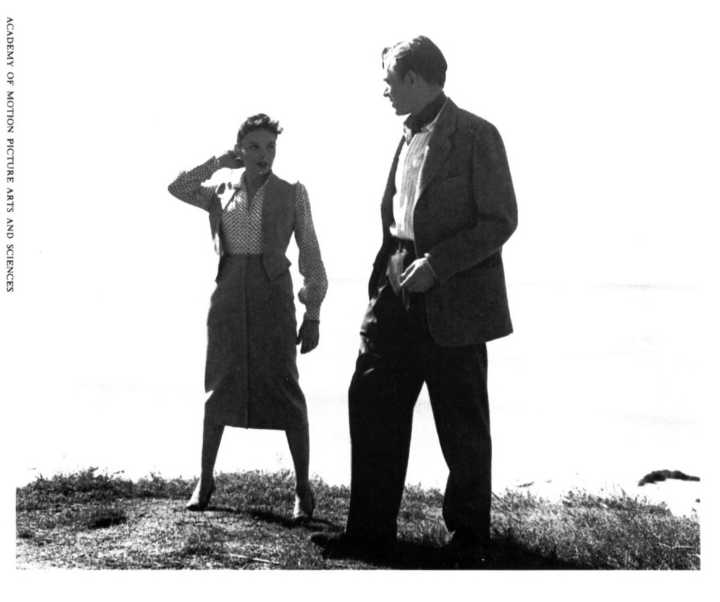
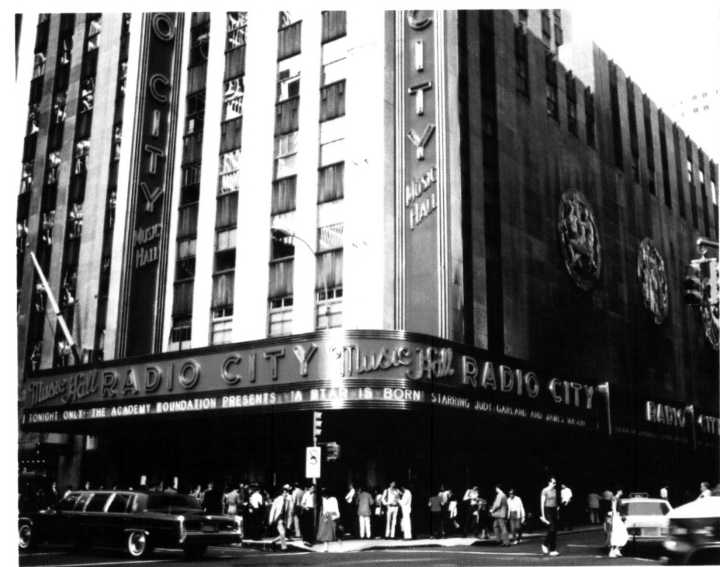
Opening night, Radio City Music Hall, July 7, 1983.
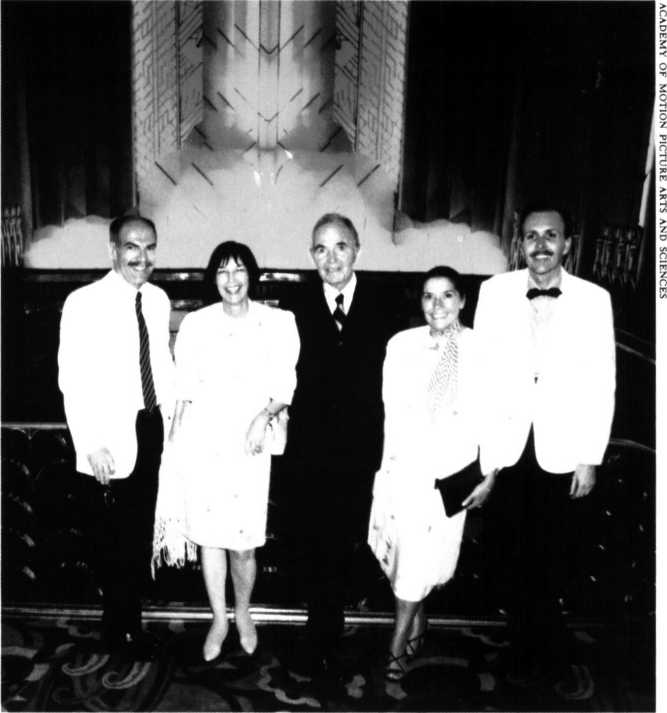
Ronald Haver, Fay Kanin, James Mason, Clarissa Mason, and Douglas Edwards
at the Paramount Theater, Oakland, California.
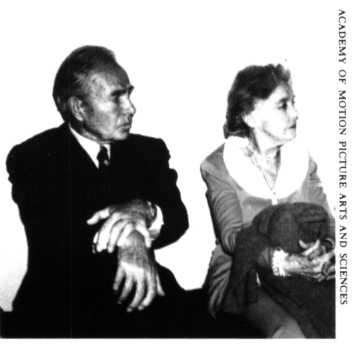
James Mason and Lillian Gish
on the national tour.
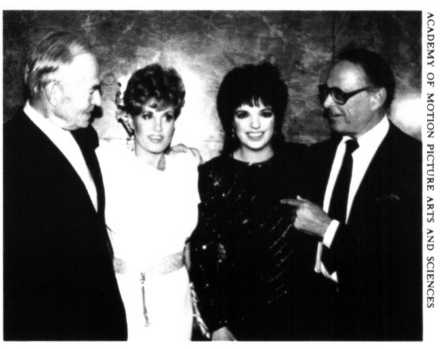
James Mason, Lorna Luft, Liza Minnelli,
and Sid Luft backstage at Radio City.
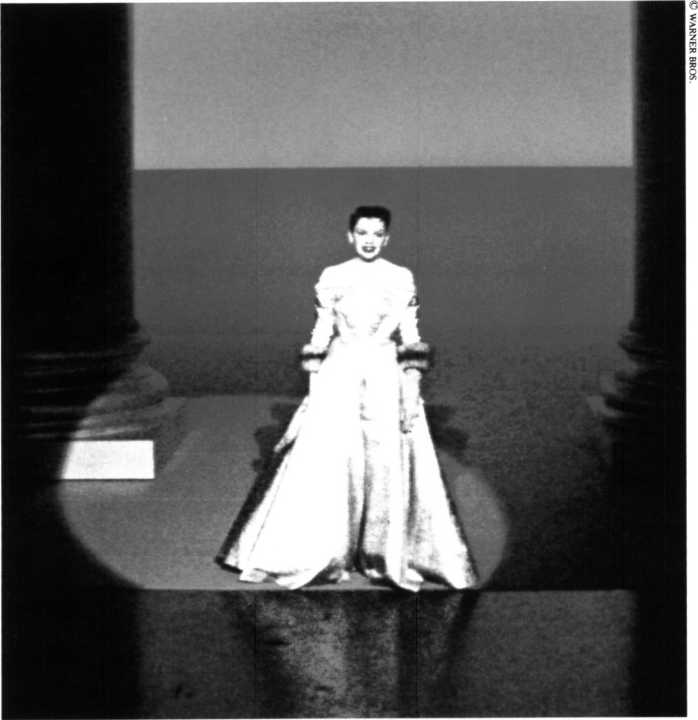
"Hello, everybody, this is Mrs. Norman Maine."
The star herself managed to maintain a sense of humor about all this, for,
as Gerold Frank relates, the four-months-pregnant Garland was jostled
badly by the crowds around the Paramount Theatre. As the throng surged
around them, Garland, Luft, and the wedge of police surrounding them
were forced out of the lobby and out a side door onto Forty-third Street,
where the horse of one of the mounted policemen lifted its tail and relieved
itself directly in front of them, causing the richly dressed Garland to burst
into laughter and exclaim, "A critic!"
Other critical reaction, however, was laudatory. In fact, the reviews from
most of the major newspapers and magazines were so favorable that they
could have been written by the Warner Bros. press department. Variety's
review of September 2q led the parade of praise:
A Star Is Born is a socko candidate for anyone's must see list, scoring on all
counts as fine entertainment.... It is among the top musicals that have come
from the Hollywood stages.... It is a big picture for big selling ... and big
box office should be the rule rather than the exception. The tremendous
outlay of time and money ... is fully justified ... it is to the great credit
of Jack Warner that he kept his mind and pursestrings open and thus kept
the project going despite ... the insurmountable stumbling blocks. For both
Miss Garland and Warner the racking months that went into the making
of [the film] will soon be forgotten in the joy of an artistic and box office
smash.
Life magazine agreed, saying that the picture was "a brilliantly staged,
scored and photographed film, worth all the effort." Look proclaimed that
Garland "puts on the greatest one woman show on earth." Bosley Crowther
in The New York Times raved that "it is something to see, this Star Is Born!
A stunning achievement." The New York Daily News gave it four stars,
its highest rating; Parents magazine gave it its Award of Special Merit. And
critical reaction was generally the same all across the country as the picture
opened its first-run engagements in the early weeks of October. All reviewers commented favorably on the new Moss Hart screenplay, on Cukor's
direction, and especially on the innovative use of CinemaScope and the
imaginative and subdued production and color design. There was unanimous praise for Garland, with everyone commenting not only on her
newfound maturity as a singer and performer but also on her surprising
abilities as a dramatic actress. James Mason's performance was greeted with superlatives and hailed as the equal, if not the superior, of Garland's for its
subtlety and bitter humor. Both performances were deemed to be of Academy Award caliber. Cukor's direction was alternately hailed and faulted,
the latter primarily for allowing too much production to swamp the story.
Noel Coward, a consummate theatrical professional and a friend of both
Garland and Cukor, saw the film in its initial run, and his comments in his
diary are lucid and pithy:
I went to see A Star Is Born. What happened to the ... once famous
American timing sense? In spite of fine acting performances by Judy ... and
James ... and a lavish, highly coloured production, it dragged interminably.
Every song was attenuated to such a length that I thought I was going mad.
One in particular, "Born in a Trunk," started brilliantly but by the time it
was over and we had endured montage after montage and repetition after
repetition, I found myself wishing that dear enchanting Judy was at the
bottom of the sea. The picture ran for three hours; if it had been cut down
to two, it would have been really exciting.
This was the one major criticism that was leveled at the film everywhere:
it was too long, and the story was constantly being interrupted for too many
lengthy musical numbers, especially in the second half. Exhibitors were
complaining to Kalmenson about this; even Variety, the show-business
barometer, while commenting on the tremendous business the picture was
doing in its initial week, observed that "the tremendous length of pic is
murder to the turnover." Kalmenson, armed with reviews criticizing the
picture's length and with complaints from exhibitors, made a strong case
to Harry Warner that if the picture were shortened, they could make even
more money. In its first week, the picture was outgrossing just about every
other picture in release. The second week saw a slight falling-off in attendance; at several first-run theaters, prices were dropped and schedules were
revamped so that the last show started at nine instead of ten. Unfortunately, there still was no "prime time" screening at seven-thirty or eight,
and once again a chorus of complaints went up about the length.
Finally, Harry Warner ordered Jack to shorten the film as quickly and
efficiently as possible; editor Folmar Blangsted's cutting notes indicate that
there had been discussion about this within the first few days after the Los
Angeles opening. Blangsted's second wife, Elsa, herself a film editor, relates: "I wasn't married to him then, but he told me later that A Star Is Born was a great thorn in his side. He loved Cukor, loved working with him,
and apparently Cukor liked him too. But Cukor had left to go to India. It
was Warner who said 'Take it out.' It's true Folmar could have said 'I'll
quit before I do this,' but by that time he'd been there for such a long time,
and Warner had insisted that Folmar be put on as editor-[Garland and
Luft] wanted Bill Ziegler, but Warner wanted Folmar to do it. These men,
and my husband was one of them, they really believed in that system. Those
[moguls] were like fathers to men like Folmar-they were the boss. Folmar
told me over and over that it was Jack who said 'Cut it'; Folmar started
sending wires to Cukor in India: 'Please contact me, contact Warner;
they're making me take out important scenes, whole sequences.' But he
never got a response from Cukor, and Cukor never spoke to Folmar again;
he blamed him for the cuts. He didn't dare blame Warner, because, you
know, there's such a club with the big ones. In those days they patted each
other's backs-now they kiss. But there is a club and they will always find
a fall guy, and Folmar was Cukor's."
Just who decided what should be cut is a mystery. The only notes
regarding suggested cuts in the Warner Bros. files is a handwritten memo
from someone in the sales department named Barrie Richardson which
says: "Here are the suggested cuts we talked about making in the picture."
This is followed by a description of what was to be omitted in the new
version:
Entire scene omitted where Esther says goodbye to members of the band.
Following scenes in sequence completely omitted:
-Maine being led to car in front of his home and being driven to location.
-Esther sitting in bungalow court and washing hair; lying by swimming
pool.
-Maine on boat for location filming.
-Oliver Niles talking with Maine's director on phone and talk with Libby
about Maine being sick.
-Esther at rooming house talking on phone about singing job.
-Esther singing Calypso commercial for shampoo outfit.
-Esther at 'burger stand talking in phone booth with Danny and scene
with customer asking what's on the menu.
-Maine at Oleander Arms looking for Esther.
-Maine and Lucy Marlow hearing Esther's TV commercial.
-Maine finding Esther on roof of rooming house.
Thus new transcript jumps from scene at dawn in bungalow court when Esther tells Danny she is quitting the band and jumps to studio scene of
Esther being made up for screen test.
-Scene omitted of Esther and Maine driving to preview of Esther's
picture.
-Entire scene omitted of recording session when Maine proposes to
Esther.
-Entire "Lose That Long Face" number omitted-moves directly to
dressing room scene.
